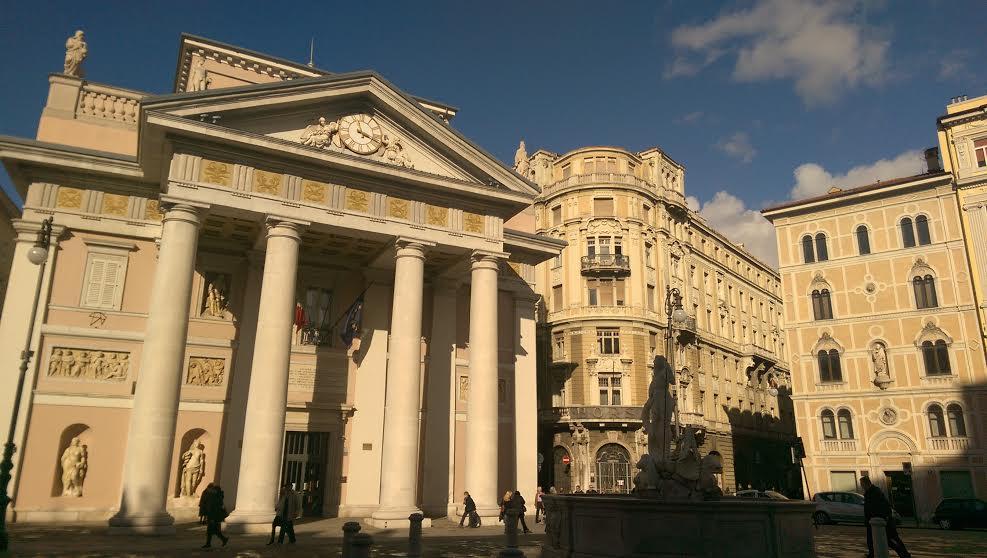
With Europe long stuck in economic stagnation, the continent is abuzz with Jean-Claude Juncker’s €315 billion (US$337 billion) strategic investment plan. The idea is to kickstart the European Union’s economy by investing in transportation infrastructure, digital technologies and energy. But with more heads than a hydra, getting member states within the EU to agree on any proposal is a massive task.
Now, one of the world’s leading environmental NGOs is suggesting that Brussels takes a step back and rethink what long-term investment in Europe really means. World Wildlife Fund (WWF) is urging the EU to take action, but not the business-as-usual approach. Instead, the organization urges the economic bloc’s leaders to put natural capital first and not delay such action in the name of economic recovery.
The 100-plus page report calls for a “new sustainable economic paradigm” with an emphasis on environmental sustainability. But rather than lean on the long-term effects of climate change and environmental degradation, WWF argues that resource efficiency could generate the equivalent of some €300 billion annually — equal to the spend required under the Juncker Plan.
The keys, according to WWF, lie in five suggested steps — and the first few may elicit some eye-rolls for those suffering from framework and planning exhaustion.
First, the WWF suggests a revamped strategic vision for 2050. Among the usual resource efficiency, financial, climate and energy frameworks, the organization calls for five “cross-cutting priority frameworks.” Arguing that each policy shift cannot fit in any of the long-term frameworks, the WWF prods the EU to adopt policies that would inspire “eco-innovation,” green jobs, green public procurement, consumer empowerment and a new way to measure economic performance other than GDP. In one word, we are talking about investment. The WWF holds up Finland as an example: During the early 1990s economic crisis, the company ignored cuts to essential government services and instead invested in education along with research and development.
Next, the WWF clamors for a new climate and energy framework with a roadmap for 2030 — understandable since the flowery 2020 EU goals were fraught with plenty of thorns, including a focus on biofuels that did little except help ignite the food-versus-fuel debate. But rather than only focus on clean energy technologies, the WWF seeks more attention on energy efficiency. A 40 percent energy efficiency target, insists the EU, will reduce oil and gas imports significantly and therefore boost internal investment.
The third step ties into the oft-discussed goal of setting a price on nature. WWF advocates for an EU-wide target for resource efficiency by 2030, with a renewed effort to protect natural habitats and manage water more efficiently. Envisioning a dashboard that will monitor carbon, water, land and biodiversity footprints, WWF calls for ecosystems to be valued, and accounted, at national and EU levels. One example that WWF highlights is a project in Ireland that nixed the construction of a water treatment plant in favor of an integrated wetland — which ended up being cheaper and more effective.
Financial reform, which really integrates the environmental with the financial numbers, is an additional suggested step. The WWF directive encourages the EU to ban what it calls EHS, or environmentally harmful subsidies. From shale gas to certain agriculture subsidies, WWF wants not only reductions, but also an end to those subsidies. In addition, tax reform, such as a reduced VAT (value-added taxes) for more environmentally friendly products and services, are necessary to wean Europe away from fossil fuels and closer to a greener economy. And in a move that will pose a huge political problem, the WFF wants more of the EU budget spent on commitments to climate — 20 percent by 2016.
Finally, the WWF seeks a renewed international leadership on climate change and environmental leadership from Europe — a suggestion that will certainly not fall on deaf ears within the EU, but will also spark teeth-gnashing as many Europeans assumed they have been leaders on these fronts for over a generation.
The WWF proposal certainly does offer plenty of thoughtful points that EU leaders should consider. Whether this 28-state organization, and the business community, will pay attention is another matter. But as the cliché goes, doing the same thing over and over again while expecting different results only creates more insanity. And with more species and virgin land being lost at an accelerated rate over the past 40 years, the old way of 'build-first, clean up later' will not work in the long run if the planet is going to support 9 billion people by 2050.
Image credit: Leon Kaye
Based in Fresno, California, Leon Kaye is a business writer and strategic communications specialist. He has also been featured in The Guardian, Clean Technica, Sustainable Brands, Earth911, Inhabitat, Architect Magazine and Wired.com. When he has time, he shares his thoughts on his own site, GreenGoPost.com. Follow him on Twitter and Instagram.

Leon Kaye has written for 3p since 2010 and become executive editor in 2018. His previous work includes writing for the Guardian as well as other online and print publications. In addition, he's worked in sales executive roles within technology and financial research companies, as well as for a public relations firm, for which he consulted with one of the globe’s leading sustainability initiatives. Currently living in Central California, he’s traveled to 70-plus countries and has lived and worked in South Korea, the United Arab Emirates and Uruguay.
Leon’s an alum of Fresno State, the University of Maryland, Baltimore County and the University of Southern California's Marshall Business School. He enjoys traveling abroad as well as exploring California’s Central Coast and the Sierra Nevadas.














